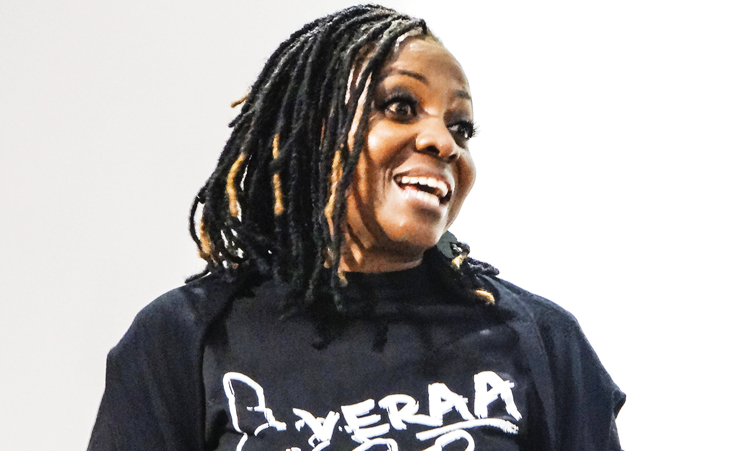Film-maker Othilia Tutu Mungoba presents her investigation into Namibian slang in the entertaining and explanatory ‘Veraa!’. The research-based documentary was screened to a full house of the linguistically-curious at Goethe-Institut Namibia’s ‘Cinemaverse’ in Windhoek last week, capped with a slang-heavy and spirited spoken word session by North Side Rabbi.
Exploring the origins, contemporary usage and evolution of Namibian slang while measuring the informal language’s pros and cons, ‘Veraa!’ features commentary by creatives Franklin Shitaleni, Boli Mootseng, Che Ulenga, Fidel O’Del and Denzel NSK //Naobeb, as well as insights from academics Ellison Tjirera, Levi Namaseb and Wandja Njuguna.
“I’m very curious, very orig, a storyteller, a story lorrie, like they say. I’m fascinated about how people speak today and how it translates to how we communicate tomorrow,” says Mungoba.
“I wanted to present ‘Veraa!’ like a messy music video because that’s also what translates to the youngsters, but then you’ve also got appreciation of the academia that comes through.”
While slang is often dismissed as informal, unprofessional, indolent or unintellectual, ‘Veraa!’ invites the audience to dig deeper and appreciate its many facets.
Slang was “a language to dodge the lanie,” says Mootseng, considering its usefulness during apartheid. The idea of slang being a way to speak cryptically to certain communities and to particular peers is echoed by //Naobeb and by Njuguna, who is learning contemporary slang from her son.
“My son, thank God is Generation Z, so he keeps updating me,” says Njuguna. “I’m told that mum is zali. I have to keep updating as an older person.”
Slang’s significance as the language of the youth is the province of Shitaleni, who contrasts the slang spoken by high schoolers from the townships and those from the suburbs, as well as the language’s ability to bridge such divides.
Speaking on the cons of slang, Shitaleni does caution that “nobody is gonna hire a 54-year-old slanged out kid” and that knowing how to communicate more formally and spell things out in full is important in many contexts and in the long run.
As many Namibians consume media from North America, the United Kingdom and South Africa, it follows that much of the country’s local slang is influenced by these places.
“Slang itself is very important for a country’s identity,” says //Naobeb. And this search for such identity was central to the creation of ‘Veraa!’.
“Overall and subliminally, I really wanted to ask the audience, who are you in the zoo? For our generation, most of the words come from South Africa, so what does that say about us as a people?” asks Mungoba.
“If you look at the deeper meaning of ‘veraa’, which means verder (going forward), which is what’s up, it’s really a question to you. Like really, what’s up? What is ours, who are we, what is what?”
A passion-driven and worthy investigation that lacked deeper insights from the youth, especially Gen Z, and which could have benefited from more thematically focused talking heads, ‘Veraa!’ is an upbeat documentary whose shortcomings are partially explained by a one-week production schedule and its shoestring budget.
Mungoba, who created the film as part of the 2023 Fabrica ‘Make-A-Thon’, hopes to expand on the concept in the future. “Language is ever evolving. So ‘Veraa!’ needs to be ever evolving too,” she says.
– martha@namibian.com.na; Martha Mukaiwa on Twitter and Instagram; marthamukaiwa.com
Stay informed with The Namibian – your source for credible journalism. Get in-depth reporting and opinions for
only N$85 a month. Invest in journalism, invest in democracy –
Subscribe Now!







